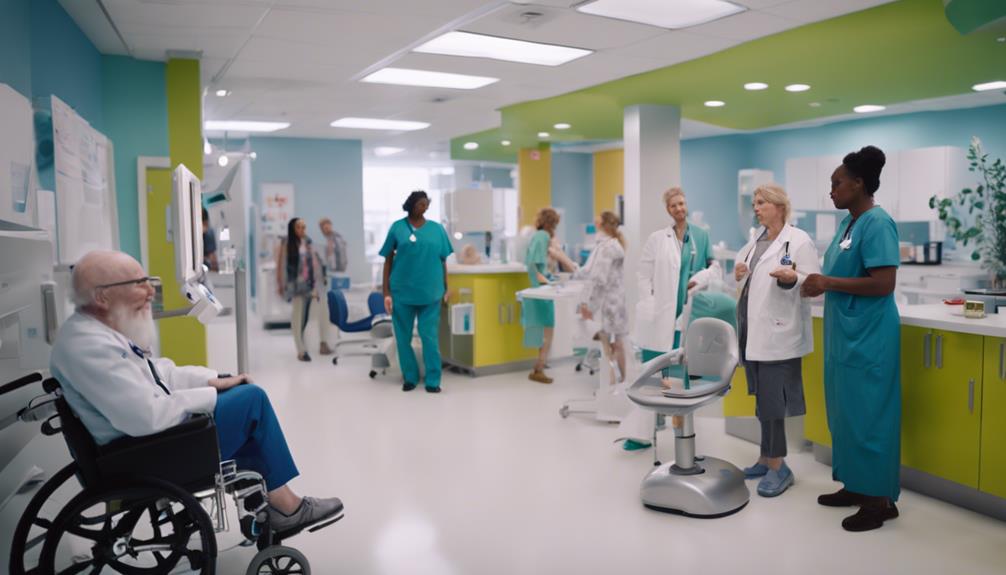In the ever-evolving landscape of healthcare, understanding medical qualifications is crucial for both aspiring healthcare professionals and patients seeking quality care. This article will provide an in-depth look at medical qualifications, including what they are, the various types, and their significance in the healthcare sector.
What Are Medical Qualifications?
Medical qualifications refer to the credentials and certifications that healthcare professionals must obtain to practice their respective fields legally. These qualifications can range from degrees and diplomas to specialized certifications, depending on the medical profession. They serve as a benchmark for competence, ensuring that practitioners have the necessary knowledge and skills to provide safe and effective care to patients. Understanding these qualifications is vital for anyone considering a career in healthcare or looking to understand the credentials of their healthcare providers.
The Importance of Medical Qualifications in Healthcare
The importance of medical qualifications cannot be overstated. They are essential for maintaining the integrity and safety of healthcare services. Qualified professionals are held to rigorous standards, which helps minimize errors in patient care and enhances overall healthcare outcomes. Furthermore, medical qualifications help build trust between patients and providers. When patients know that their healthcare provider has the appropriate qualifications, they are more likely to feel confident in the care they receive.
Types of Medical Qualifications
Medical qualifications can be broadly categorized into several types, each serving a specific purpose. These include:
1. Undergraduate Degrees: Typically the first step for aspiring healthcare professionals, these degrees provide foundational knowledge in health sciences. For example, a Bachelor of Medicine, Bachelor of Surgery (MBBS) is essential for medical doctors.
2. Postgraduate Qualifications: After obtaining an undergraduate degree, healthcare professionals can pursue specialized training through postgraduate qualifications. These may include Master’s degrees in Public Health or Doctorate degrees in Medicine.
3. Licensure and Certification: Most health professions require licensure to practice legally. This often involves passing a standardized exam and meeting specific educational criteria. Certifications, such as Board Certification for physicians, validate a professional’s expertise in a particular specialty.
4. Continuing Education: The field of medicine is constantly changing, necessitating ongoing education. Healthcare professionals must often complete continuing education courses to maintain their licenses and stay updated on the latest practices and technologies.
How to Obtain Medical Qualifications
Obtaining medical qualifications involves several steps, each requiring dedication and commitment. The journey typically begins with completing a high school diploma or equivalent, followed by enrolling in a relevant undergraduate program. After earning an undergraduate degree, aspiring healthcare professionals must apply to medical school or other specialized training programs, which often include rigorous entrance exams. Once admitted, students undergo several years of education and clinical training before obtaining their degree. Finally, they must pass licensure exams to practice legally in their respective fields.
Challenges in Pursuing Medical Qualifications
While pursuing medical qualifications can be rewarding, it is not without challenges. The educational path is often long and demanding, requiring significant time, financial investment, and emotional resilience. Many students face high stress levels due to the intense competition and workload. Additionally, the cost of medical education can be a barrier for many aspiring healthcare professionals. Addressing these challenges requires a strong support system, effective time management skills, and a commitment to personal well-being.
Future Trends in Medical Qualifications
The landscape of medical qualifications is continually evolving. One significant trend is the increasing emphasis on interprofessional education, which encourages collaboration among healthcare disciplines. This approach enhances communication and teamwork skills, ultimately improving patient care. Additionally, the rise of telemedicine has led to new qualifications and certifications focused on digital health competencies. As technology continues to advance, medical qualifications will likely adapt to include new skills and knowledge areas necessary for modern healthcare practice.
How Patients Can Verify Medical Qualifications
For patients, verifying medical qualifications is essential to ensure they receive care from qualified professionals. Patients can start by asking healthcare providers directly about their qualifications and certifications. Additionally, many countries have regulatory bodies and online databases where patients can check the credentials of their healthcare providers. It’s also beneficial for patients to familiarize themselves with common medical qualifications and licensure requirements in their region, enabling them to make informed decisions about their healthcare.
The Role of Medical Qualifications in Patient Safety
Medical qualifications play a pivotal role in ensuring patient safety. Qualified healthcare professionals are trained to recognize and respond to potential complications, make informed decisions, and provide appropriate interventions. When healthcare providers possess the necessary qualifications, the risk of medical errors decreases significantly, leading to better patient outcomes. Furthermore, well-qualified professionals are better equipped to educate patients about their health, fostering a collaborative approach to healthcare that prioritizes patient safety and well-being.
In conclusion, understanding medical qualifications is crucial for anyone involved in the healthcare industry, whether as a provider or a patient. By knowing the different types of qualifications, the process of obtaining them, and their importance in patient safety, individuals can make informed decisions and foster a healthcare environment that prioritizes quality and competence. As the healthcare landscape continues to evolve, staying informed about medical qualifications will remain a vital aspect of both professional development and patient care.Medicare Fraud PreventionWhich Health Plan Should I ChooseMedicaid Information
